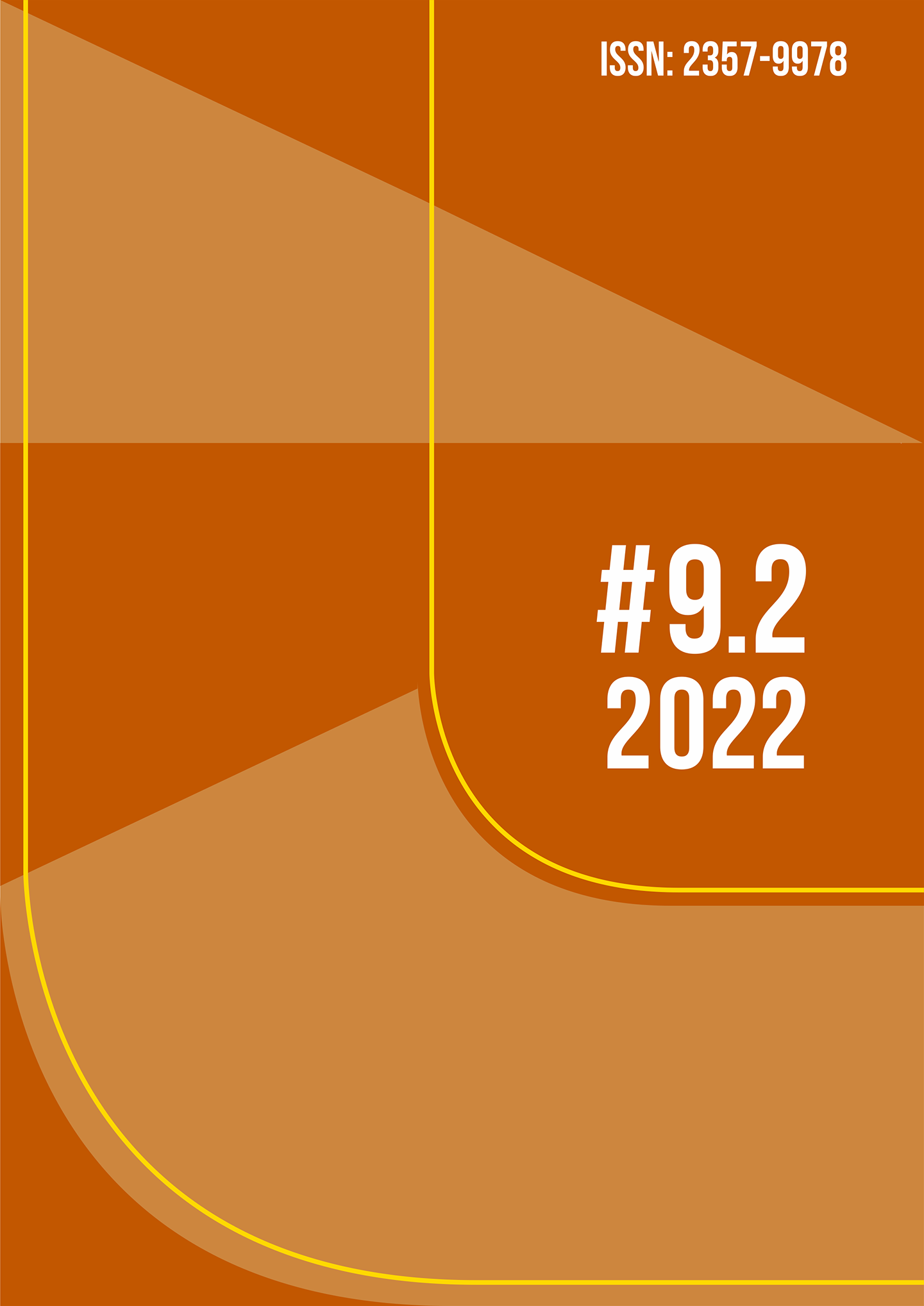A performance humana e das plantas na ecologia do café
DOI:
https://doi.org/10.36025/arj.v9i2.28779Palavras-chave:
arte, ecologia, relações multiespéciesResumo
O artigo tem como objetivo aproximar a performance entre humanos e plantas, a partir da ecologia do café, compreendendo que mundos são constituídos por relações multiespecíficas (HARAWAY, 2016). A aproximação se dará no texto em uma perspectiva histórica e artística, entre referências textuais e imagéticas, com trânsito entre saberes interdisciplinares. Na primeira parte do texto, discorremos sobre a história do plantio do café, de suas práticas e contexto político racializante no Brasil. Na segunda parte, seguimos com algumas contribuições de artistas brasileiros e portugueses que se apresentam ou partem do café como suporte e base de trabalho. Finalizamos o texto com uma discussão sobre a relação entre humanos e plantas, reconhecendo formas de exploração comuns sobre a sociedade e a natureza, e como a arte é uma importante forma de produção de conhecimento e elaboração sobre o real.
Downloads
Referências
CASCUDO, Luís da Câmara. História da alimentação no Brasil. 3. ed. São Paulo: Global. 2004.
COCCIA, Emanuelle. A virada vegetal. São Paulo: N1 Edições, 2018.
GÓES, Weber Lopes. Racismo, eugenia no pensamento conservador brasileiro: a proposta de povo em Renato Kehl. 2015. Tese de doutoramento. Universidade Paulista do Estado de São Paulo – UNESP. Marília – SP, Brasil.
GUZZO, M. S. L.; ALVES, K. R. Dança menor: políticas para criar o corpo e o comum. Arte da Cena (Art on Stage), Goiânia, v. 7, n. 1, p. 376-397, 2021. DOI: 10.5216/ac.v7i1.65652. Disponível em: https://www.revistas.ufg.br/artce/article/view/65652. Acesso em: 30 mar. 2022.
GUZZO, M.; TADDEI, R. Experiência estética e antropoceno. Políticas do comum para os fins de mundo. Desigualdade & Diversidade, n. 17, p. 72-88, 2019. https://doi.org/10.17771/PUCRio.DDCIS.46021 . Acesso em: 30 de mar. de 2022.
HARAWAY, Donna. Antropoceno, Capitaloceno, Plantationoceno, Chthuluceno: fazendo parentes. Tradução: Susana Dias, Mara Verônica, Ana Godoy. ClimaCom, Campinas, v. 3, n. 5, 2016. Disponível em: http://climacom.mudancasclimaticas.net.br/antropoceno-capitaloceno-plantationoceno-chthuluceno-fazendo-parentes/.
HARAWAY, Donna. When Species Meet. Minneapolis: University of Minnesota Press, 2008.
KILOMBA, Grada. Memória da Plantação: Episódios de Racismo Cotidiano. Tradução: Jess Oliveira. Rio de Janeiro: Cobogó, 2019.
LAMOUNIER, Maria Lúcia. Agricultura e Mercado de Trabalho: Trabalhadores Brasileiros Livres nas Fazendas de Café e na Construção de Ferrovias em São Paulo, 1850-1890. Estudos Econômicos, São Paulo, v. 37, n. 2, p. 353-372, 2007. Disponível em: https://www.revistas.usp.br/ee/article/view/35908.
MUAZE, Mariana de Aguiar Ferreira. Violência apaziguada: escravidão e cultivo do café nas fotografias de Marc Ferrez (1882-1885). Revista Brasileira de História, São Paulo, v. 37, n. 74, jan./abr. 2017. DOI: http://dx.doi.org/10.1590/1806-93472017v37n74-02. Disponível em: https://www.scielo.br/j/rbh/a/96ypCVNpCWQDv59Vtqqjdyw/?lang=pt.
MULAMBO. Entrevista Mulambö. Entrevistadora: Clarisse Gonçalves. Desvio, 10 jan. 2020. Disponível em: https://revistadesvio.com/2020/01/10/entrevista-mulambo/. Acesso em: 19 fev. 2022.
NAGAY, Julio Hidemitsu Corrêa. Café no Brasil: dois séculos de história. Formação Econômica, Campinas, v. 3, n.1, p. 17-23, 1999. Disponível em: https://www.eco.unicamp.br/images/arquivos/artigos/882/formacao3-2.pdf.
OXFAM BRASIL. Mancha de café: a situação dos trabalhadores rurais na produção de café em Minas Gerais e a responsabilidade social corporativa dos supermercados. Informe [Relatório] da Oxfam Brasil. São Paulo: Oxfam Brasil, 2021. Disponível em: https://www.oxfam.org.br/justica-rural-e-desenvolvimento/por-tras-do-preco/mancha-de-cafe/.
PINACOTECA. Grada Kilomba: Desobediências Poéticas. [Website.] São Paulo: Pinacoteca de São Paulo, 2019. Disponível em: https://pinacoteca.org.br/programacao/exposicoes/grada-kilomba-desobediencias-poeticas/. Acesso em: 10 de fev. de 2022.
REZENDE, Priscila. Como erguer baronatos [2018]. [Website.] Registro de performance. Disponível em: http://priscilarezendeart.com/projects/como-erguer-baronatos-2018/. Acesso em: 19 fev. 2022.
SALES, Michelle. Nossos Fantasmas Estão Vindo Cobrar: Giro Decolonial na Arte Contemporânea Brasileira. Vista: revista de cultura visual, [S. l.], n. 8, p. 1-14, 2021. DOI: https://doi.org/10.21814/vista.3641. Disponível em: https://revistavista.pt/index.php/vista/article/view/3641. Acesso em: 30 mar. 2022.
SEBASTIÃO, Walter. Exposição aberta em Ouro Preto destaca a escravidão a partir do indivíduo. Uai, 7 jul. 2014. Disponível em: https://www.uai.com.br/app/noticia/e-mais/2014/07/07/noticia-e-mais,157040/exposicao-aberta-em-ouro-preto-destaca-a-escravidao-a-partir-do-indivi.shtml. Acesso em: 04 de set. de 2022.
Downloads
Publicado
Como Citar
Edição
Seção
Licença
Copyright (c) 2022 Kidauane Regina Alves, Marina Souza Lobo Guzzo (Autor)

Este trabalho está licenciado sob uma licença Creative Commons Attribution-NonCommercial-ShareAlike 4.0 International License.

Esta obra está licenciada com uma Licença Creative Commons Atribuição-NãoComercial-CompartilhaIgual 4.0 Internacional.
Autores detêm os direitos autorais ao licenciar sua produção sob Creative Commons Atribuição-NãoComercial-CompartilhaIgual 4.0 Internacional.


 English
English Português (Brasil)
Português (Brasil)
